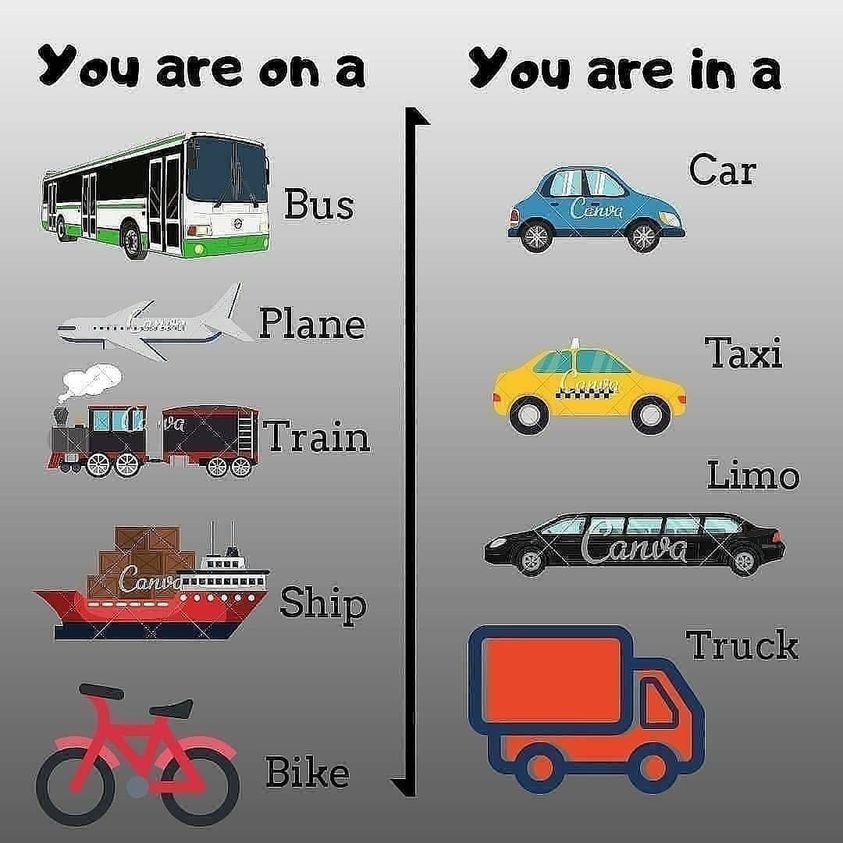If you study English as a second language, this is probably one of those things you were told just to memorize: you say “get in” and “get out of” for a car, taxi, etc. but you say “get on” or “get off” for a bus or train.
But why do we make a distinction? For things like horses and motorcycles, “get on” makes sense, since we are literally on top of it. However, we are physically inside a bus, so why can’t we say “get in a bus?” The rule is:
If you can walk onto it and stand up inside, you say “get on”. If not, you say “get in”
To illustrate, let’s list out some other methods of transportation:
➡️ Get in a car
➡️ Get in a taxi
➡️ Get in a truck
➡️ Get in a van
These are all vehicles we cannot stand up inside (for a truck, we cannot stand up inside the part where we drive; if you’re talking about the back, you could say “get on the truck”)
➡️ Get on a bus
➡️ Get on a train
➡️ Get on an airplane
For all these, you can walk onto them and stand up inside them.
.
.
#english #englishspeaking #englishlearning #englishteacher #englishvocabulary #englishwords #englishtips #englishgrammar #英語 #الإنجليزية #ingles #ingilizce #английский #inglés #inglese #angielski #ingilizceöğreniyorum #ingilizceogren #americanenglish #britishenglish #learnenglish #ieltspreparation #vocabulary #englishidioms #phrasalverbs #aprenderingles #studyenglish #speakenglish
But why do we make a distinction? For things like horses and motorcycles, “get on” makes sense, since we are literally on top of it. However, we are physically inside a bus, so why can’t we say “get in a bus?” The rule is:
If you can walk onto it and stand up inside, you say “get on”. If not, you say “get in”
To illustrate, let’s list out some other methods of transportation:
➡️ Get in a car
➡️ Get in a taxi
➡️ Get in a truck
➡️ Get in a van
These are all vehicles we cannot stand up inside (for a truck, we cannot stand up inside the part where we drive; if you’re talking about the back, you could say “get on the truck”)
➡️ Get on a bus
➡️ Get on a train
➡️ Get on an airplane
For all these, you can walk onto them and stand up inside them.
.
.
#english #englishspeaking #englishlearning #englishteacher #englishvocabulary #englishwords #englishtips #englishgrammar #英語 #الإنجليزية #ingles #ingilizce #английский #inglés #inglese #angielski #ingilizceöğreniyorum #ingilizceogren #americanenglish #britishenglish #learnenglish #ieltspreparation #vocabulary #englishidioms #phrasalverbs #aprenderingles #studyenglish #speakenglish
11 months ago

